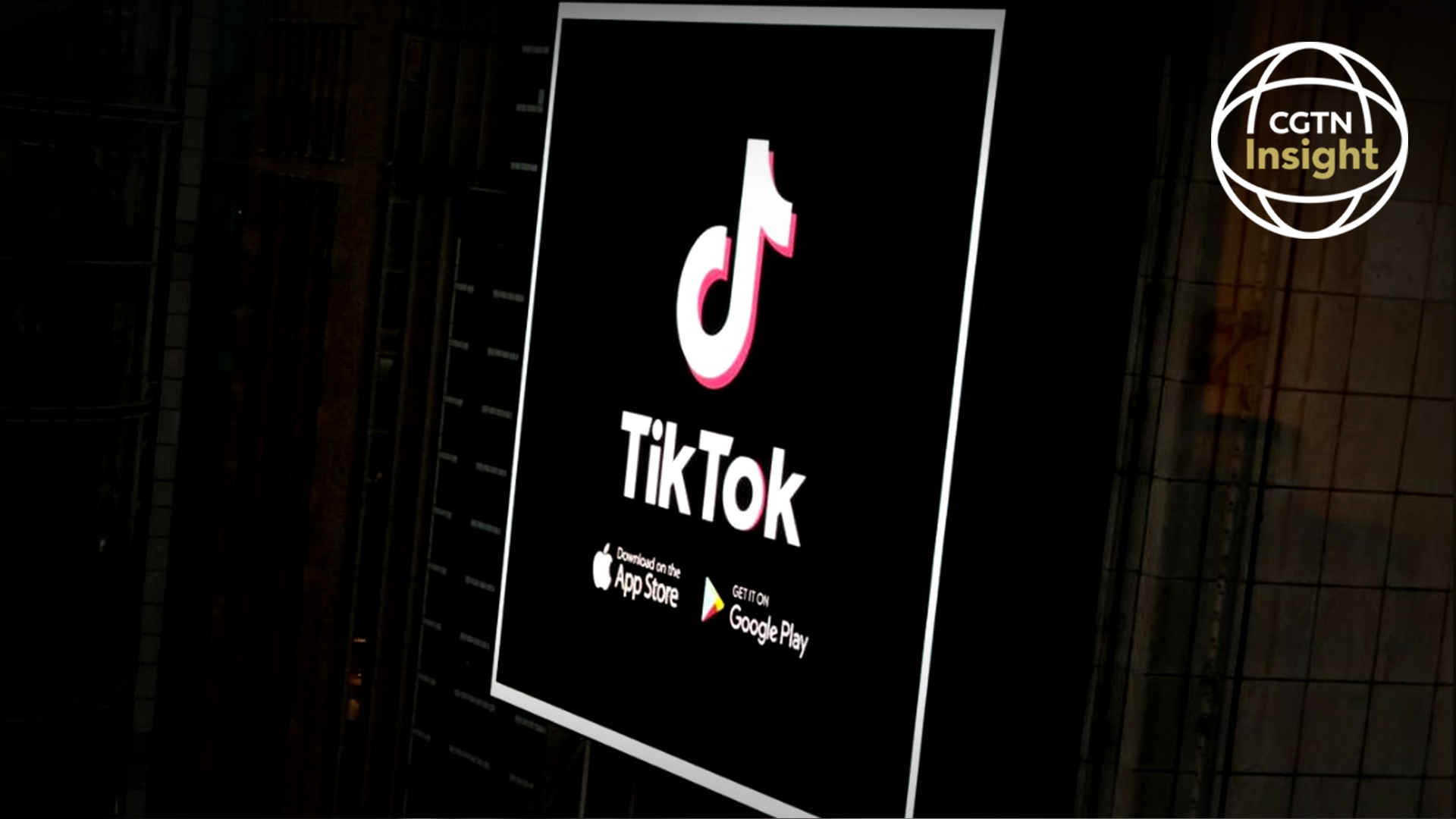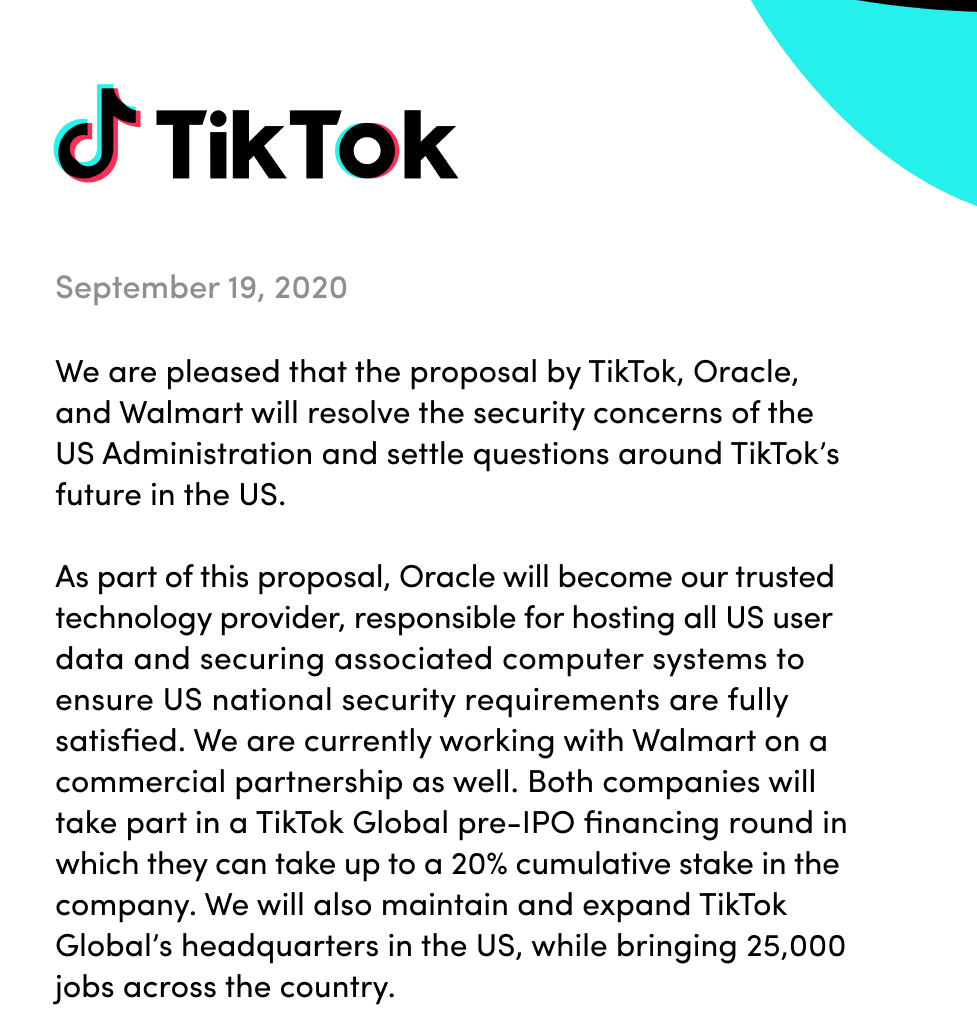
After weeks of wrestling, negotiations on a Chinese video-sharing app TikTok eventually bore fruit. The proposed deal would see the establishment of a new firm assuming TikTok's operations in the United States. Oracle and Walmart are expected to take significant shares in it.
So far, the arrangement is satisfactory to all parties concerned. "We are pleased that the proposal… will resolve the security concerns of the U.S. administration and settle questions around TikTok's future in the U.S.," TikTok said in a statement. U.S. President Donald Trump has also expressed his approval of the purchase. "I have given the deal my blessing," the hard-to-satisfy President said, adding that "I approve the deal in concept."
The arrangement comes after a legal attempt by TikTok and its parent company ByteDance to stop Trump's ban on the app. Earlier, Trump accused the video-sharing platform as a "security risk" on the ground that the Chinese government could obtain data from U.S.-based users. Blocking TikTok's access to the U.S. market, Washington, as China's Ministry of Commerce said on its online statement, "has repeatedly used national power to hunt and suppress" Chinese companies.
The unfair treatment of Chinese firms is a violation of the U.S. Constitution and a serious disruption of normal business activities. TikTok's response to it is filing the lawsuit against Trump and the U.S. Department of Commerce. Instead of being submissive to Washington's bullying behavior, the Chinese company has bent over backward for its justified rights. And its efforts paid off. Although the ban is still expected to take effect until the purchase is concluded, the proposed deal, satisfactory to all parties involved, is believed by many as the best that Chinese firm has strived so far for its future in the United States.

TikTok's statement /TikTok Twitter
TikTok's statement /TikTok Twitter
China's counteractions to the ban have also prompted the United States to act pragmatically. The Trump administration's approval on the deal tells a lot. From Huawei to TikTok to WeChat, the White House has fired several shots against Chinese companies it deemed as a challenge as its hegemonic status. The acts are not only illegal but also blatant violations of the principles of the market economy and fair competition.
Any breach of the market law will boomerang, and so does Trump's ban. Before blocking TikTok from the U.S. market, the President should have been alerted of its popularity among Americans. The app reported nearly 700 million monthly active users in July with more than 2 billion global downloads. Many are earning a living by performing comedies, dances, and songs on the platform. It is especially the case during the COVID-19 pandemic where millions of Americans lost their jobs. The Trump administration's failed response to the pandemic has already infuriated the American public. Its ban on TikTok would mean another strike to Trump's popularity.
Trump introduced the ban for the U.S. hegemony, but disrupting normal market order brings more harm than good in the era of global integration. Decoupling is unrealistic in today's world, where all countries' interests are intertwined. It's interesting to note that while a slew of American politicians has been shouting decoupling from China, few American companies are willing to pull out of the world's second-largest economy. In addition, against the decoupling hypes, the Chinese mainland has seen its foreign direct investment expanded 18.7 percent year-on-year to 84.13 billion yuan (12.3 billion U.S. dollars) in August.
Politicians introduced a slew of anti-China policies for their selfish gains. But they seem to have forgotten that the economy is the basis of the upper structure. Any policy will have to conform to the market's needs and the economy before achieving its desired results. The Trump administration should have understood this before further bullying Chinese companies.
(If you want to contribute and have specific expertise, please contact us at opinions@cgtn.com.)